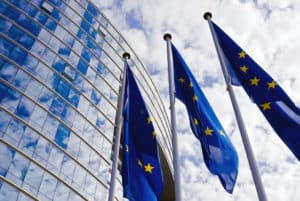A committee of European policymakers has, on Tuesday 28 November, voted in favour of the draft EU rules around active clearing accounts, aimed at encouraging more Euro clearing volumes away from the City of London and back to the Bloc.
Euro-denominated derivatives clearing is a market that has historically been dominated by the London Stock Exchange Group’s clearing house LCH in the City and has proved to be one of the key battle lines drawn since Brexit.
 Proposed by the European Commission at the end of 2022, the new Emir 3.0 proposal includes the requirement for all participants to hold active accounts at European CCPs for clearing at least a portion of certain derivative contracts, designed to increase the attractiveness of EU CCPs and encourage more volumes back across the channel.
Proposed by the European Commission at the end of 2022, the new Emir 3.0 proposal includes the requirement for all participants to hold active accounts at European CCPs for clearing at least a portion of certain derivative contracts, designed to increase the attractiveness of EU CCPs and encourage more volumes back across the channel.
It also included simplified product approvals, faster model change authorisations and increased margin model transparency, alongside the proposal of a new clearing threshold calculation.
The regulation has proved divisive across the buy- and sell-side who suggest the active account proposal specifically could hamper competition and would harm liquidity by dividing volumes between the two regions.
“The mandate to clear on EU houses will bifurcate liquidity in cleared swaps,” said one panellist speaking at the FIX Trading Conference in Paris earlier this month. “That’s an attention point for us and we will be watching it carefully. It could increase costs and decrease liquidity.”
The committee acknowledged these challenges on Tuesday, adding that the changes should be brought in under a phased approach. It has also suggested that the European Commission undergo a cost benefit analysis to assess the stability and competitiveness of markets before it imposes the mandatory threshold.
Read more – Carrot or stick? How the EU plans to reduce reliance on UK CCPs for derivatives clearing
An Acuiti Clearing Management Insight Report released in May found that around two-thirds of sell-side clearing managers do not support the EU’s recent proposals to implement active account requirements for Euro denominated swaps under Emir 3.0.
Among the specific competition concerns listed in Acuiti’s findings were that the new rules could encourage participants to take certain “uncompetitive” prices just to meet a minimum threshold of activity.
The report found that the proposals lacked clarity around how the threshold for said active accounts will be defined – an area of anxiety for those surveyed in Acuiti’s report. Overall respondents suggested that this threshold should not just be defined quantitatively.
European trade associations including AIMA, EFAMA, BFPI Ireland, EACB, FIA EPTA, Federation of the Dutch Pension Funds, Finance Denmark, Nordic Securities Association, ICI Global, FIA and ISDA, also issued a joint statement in September urging EU policymakers to delete the proposal and instead focus on streamlining the supervisory framework for EU CCPs across member states.
The European Parliament is now set to engage with European member states to negotiate the final text before the end of the year.